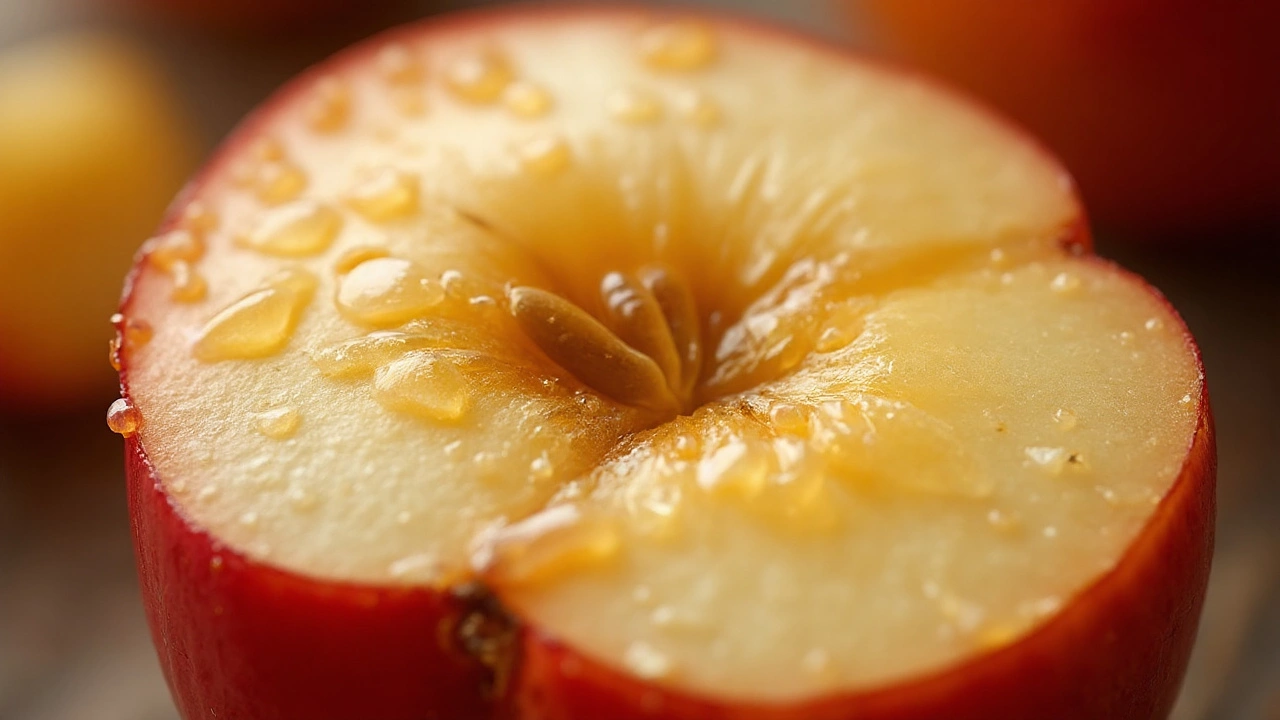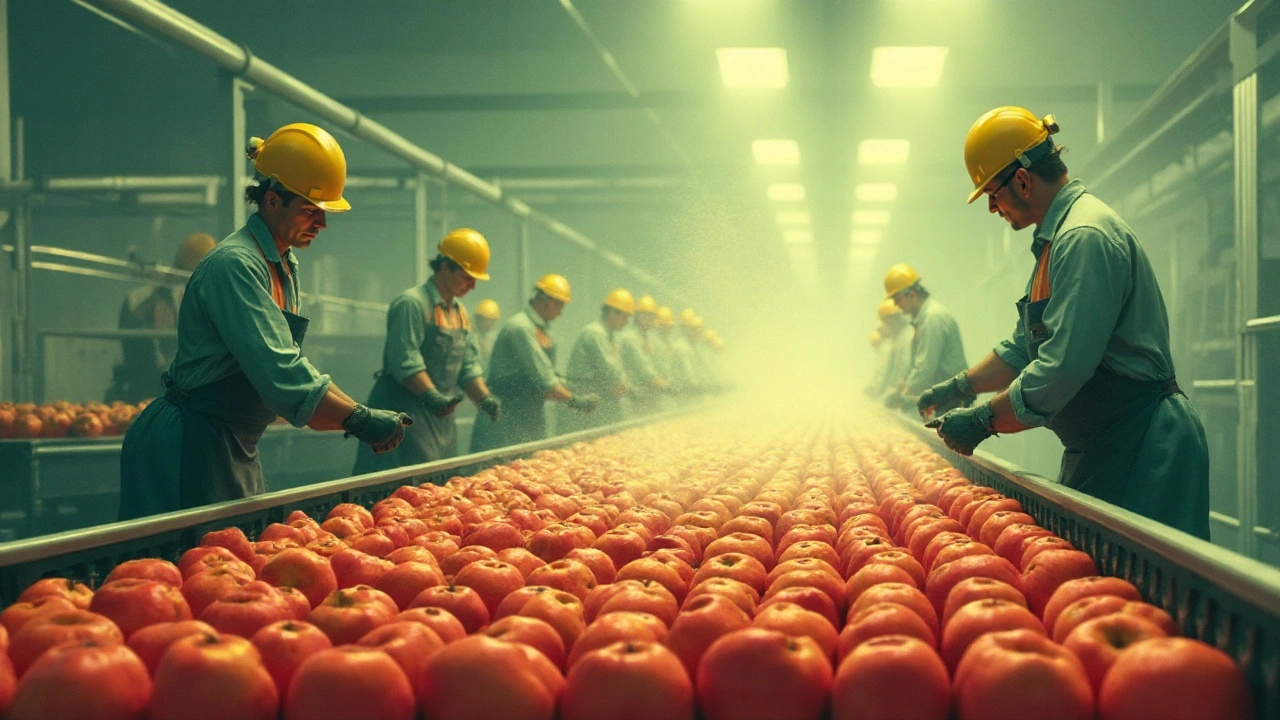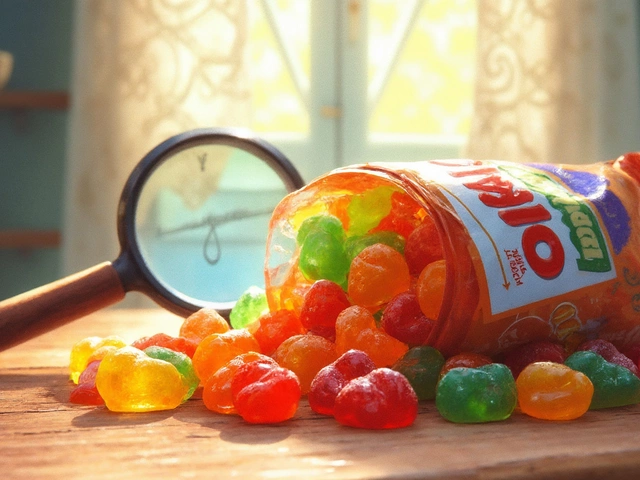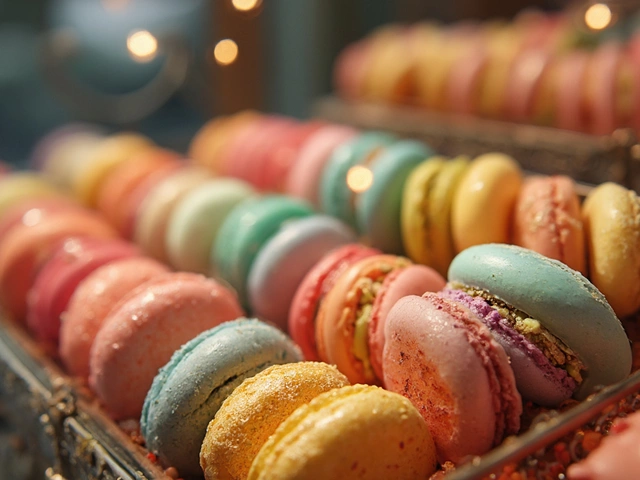
Apple Vegan Status Quiz
Apple is a pome fruit (Malus domestica) cultivated worldwide, prized for its crisp texture and sweet‑tart flavor. While most shoppers assume this everyday fruit is automatically vegan, several post‑harvest practices can introduce animal‑derived substances, making the reality more complex.
Quick Take
- Apples themselves are plant‑based, but commercial coatings often contain animal‑derived shellac.
- Some pesticides and fertilizers use animal by‑products such as bone meal.
- Organic certification does not guarantee a vegan product; it only restricts synthetic chemicals.
- Vegans can look for “vegan‑certified” or “uncoated” labels, or rinse and peel the fruit.
- Understanding the supply chain helps you make truly cruelty‑free choices.
The Myth of "Always Vegan"
It’s easy to think that any fruit, by definition, is vegan. The truth is that “vegan” describes the entire lifecycle of a food item-not just the raw ingredient. When an apple leaves the orchard, it doesn’t head straight to your kitchen. It passes through sorting facilities, storage warehouses, and transport trucks, each step offering opportunities for non‑vegan inputs.
How Apples Are Grown: From Tree to Market
The journey begins in the orchard. Apples are cultivated using a mix of soil amendments, irrigation, and pest management. Once ripe, they are harvested, usually by mechanical shakers or hand‑pickers, and then sent to a packing house. There, they are washed, sorted, and often treated with a coating to extend shelf life. Finally, they travel in refrigerated containers to grocery stores.
Animal‑Derived Post‑Harvest Treatments
Coatings are the biggest source of animal ingredients in commercially sold apples. Two common substances are:
Shellac is a natural resin secreted by the female lac beetle (Kerria lacca); it is refined into a glossy, edible coating for fruits and candies. When dissolved in ethanol and sprayed onto apples, shellac creates a barrier that reduces moisture loss and gives the fruit a shiny appearance. Because it originates from an insect, shellac is not vegan.
Another animal‑derived additive sometimes used is glycerol sourced from animal fats, employed as a humectant to maintain softness. While many manufacturers now use plant‑based glycerol (derived from soy or palm), older formulations may still rely on the animal version.
Synthetic Alternatives and Their Limits
In response to consumer demand, some growers have switched to synthetic polymers such as polyethylene, a petroleum‑based film that clings to the apple’s surface. Polyethylene is vegan by definition, but it raises other concerns: microplastic shedding, reduced recyclability, and a carbon footprint that may conflict with broader sustainability goals.
Pesticides and Fertilizers: Animal By‑Products?
Beyond coatings, the chemicals used in orchards can contain animal derivatives. For example, bone meal is an organic fertilizer made from ground animal bones, providing phosphorus and calcium. While it’s permitted in organic farming, it’s clearly non‑vegan. Similarly, some nitrogen fertilizers are derived from animal‑based urea, especially in small‑scale operations.
Pesticides themselves are often synthetic, but certain adjuvants-substances that help the pesticide stick to the plant-can be animal‑based. One historic example is mite oil, a refined animal fat used to control spider mites in orchards. Modern integrated pest management (IPM) programs increasingly replace these with plant oils, yet legacy practices linger in some regions.

Organic vs Conventional: What Guarantees Vegan?
Organic certification ensures that fruits are grown without synthetic pesticides or fertilizers, but it does not prohibit animal‑derived inputs. Therefore, an "organic apple" can still be coated in shellac or fertilized with bone meal. The only way to be certain is to look for a dedicated "vegan" label, which requires the producer to certify that no animal products were used at any stage.
Making an Informed Choice: Tips for Vegans
- Read the packaging. Terms like "waxed" or "coated" often hide animal ingredients.
- Choose "uncoated" or "fresh‑cut" apples sold loose in the produce aisle; these are less likely to have shellac.
- Buy from farmers' markets where you can ask growers directly about their post‑harvest practices.
- If you’re unsure, wash the apple under running water and scrub with a brush; this removes most waxes, though it may not eliminate all residues.
- Consider peeling the apple, especially for recipes where texture isn’t essential.
Related Concepts
Understanding why apples might not be vegan opens the door to a broader conversation about fruit processing. Other topics worth exploring include:
- Vegan certification standards for produce.
- Plant‑based alternatives to animal‑derived food additives (e.g., carnauba wax vs. shellac).
- Environmental impact of synthetic fruit coatings.
- How pollinator health affects fruit availability and labeling.
Comparison of Common Apple Coatings
| Coating | Source | Vegan Status | Typical Use | Regulatory Note |
|---|---|---|---|---|
| Shellac | Insect‑derived resin (lac beetle) | Non‑vegan | Shiny, moisture‑locking finish | Approved as food‑grade (E904) |
| Carnauba wax | Plant‑derived (Brazilian palm leaf) | Vegan | Glossy coating, often mixed with shellac | Approved (E903) |
| Polyethylene film | Synthetic polymer (petroleum) | Vegan | Extended‑shelf‑life barrier | Regulated for food contact |
Key Takeaway
While the apple itself is a plant, the journey from orchard to supermarket often introduces animal‑derived ingredients, especially in the form of shellac coating. For vegans seeking a truly cruelty‑free snack, it pays to check labels, ask growers, or simply wash and peel the fruit. By staying informed, you can enjoy the crisp bite of an apple without compromising your values.
Frequently Asked Questions
Are all apples naturally vegan?
The fruit itself is 100% plant‑based, but many commercially sold apples receive animal‑derived coatings or are grown with animal‑based fertilizers, which can make the final product non‑vegan.
What is shellac and why is it used on apples?
Shellac is a natural resin secreted by the lac beetle. It is dissolved in alcohol and sprayed onto fruit to create a glossy, moisture‑resistant finish that extends shelf life and improves appearance.
Can I easily tell if an apple is coated with shellac?
Coated apples usually have a very shiny surface and may feel slightly tacky. However, the shine alone isn’t definitive-some plant‑based waxes look similar-so checking the label for "waxed" or "coated" is more reliable.
Is organic certification enough to guarantee a vegan apple?
No. Organic rules ban synthetic pesticides but allow certain animal‑derived inputs like bone meal or shellac. Look for a separate vegan label or ask the supplier for confirmation.
How can I remove non‑vegan coatings at home?
Rinse the apple under running water, scrub with a soft brush, and soak briefly in a solution of 1% baking soda. This removes most waxes, though some residues may persist; peeling guarantees removal.
Are there fully vegan apple products available?
Yes-many growers now sell "uncoated" or "vegan‑certified" apples, especially in health‑food stores and farmers’ markets. Look for labels stating "vegan" or "no animal waxes".





